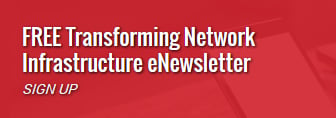|

CoreOS Delivers Tectonic 1.3 to Bring Kubernetes Container Orchestration Management to Enterprises
SAN FRANCISCO, Aug. 11, 2016 /PRNewswire/ -- For businesses looking to adopt software containers and modern infrastructure, CoreOS is delivering the Tectonic stack and Kubernetes training. Today with CoreOS's release of version 1.3 of Tectonic, the infrastructure platform that enables enterprises to securely and reliably run containers with Kubernetes anywhere, businesses can get started with new features that address enterprise requirements for deploying application containers in production with Kubernetes.
As enterprises move to deploy secure, agile, scalable infrastructure, thousands of companies and developers have chosen to orchestrate and manage their containers with Kubernetes. As a Cloud Native Computing Foundation (CNCF) maintainer of the Kubernetes project, CoreOS led efforts on a number of enterprise features in Kubernetes that are available today in Tectonic v1.3, including:
- Authorization framework: A Role-based Access Control (RBAC) authorization framework for managing user rights on a cluster, added in Kubernetes v1.3.
- Enterprise authentication: Better LDAP support means enterprises can leverage their existing authentication infrastructure.
- Improved scalability: A new version 3 of the etcd cluster configuration store for improved scalability and performance.
- Streamlined easier installation: Graphical installation tool for bare metal environments (in beta) and a graphical installer for users on AWS.
- Monitoring at the cluster level: Improve the manageability of Kubernetes in the enterprise with cluster-native monitoring capabilities, as requested by customers and the community.
Additionally, with the updated Tectonic Console, all levels of infrastructure team members have a high level graphical view of the state of the cluster. Tectonic Console now provides powerful visualizatin of Distributed Trusted Computing (DTC) node status, and gives devops teams the ability to scale cluster application deployments at the push of a button. Interested users can try Tectonic for free with Tectonic Starter.
"CoreOS continues to work alongside companies seeking an enterprise Kubernetes solution," said Brandon Philips, CTO of CoreOS. "We're working with the Kubernetes community to drive enterprise-minded features in the project. With our mission to bring the benefits of GIFEE container cluster infrastructure to today's businesses, we guide and work together with companies on their long term strategies to adopt modern infrastructure, ready for production requirements."
Kubernetes Training
Today CoreOS is introducing a series of interactive Kubernetes training classes, starting in San Francisco, Seattle and New York City. Register for a Kubernetes training session with CoreOS that introduces the fundamental concepts and architecture of Kubernetes, and provides hands-on experience showing how to deploy and manage Kubernetes clusters. These interactive workshop sessions are led by the CoreOS team that builds many of the key components of the container ecosystem.
Supporting resources:
- Sign up for Kubernetes training, https://tectonic.com/training
- Meet CoreOS at Gartner Catalyst, August 15-18 in San Diego,
- Sign up for CoreOS Premium Managed Linux, https://coreos.com/products/premium-managed-linux/
- CoreOS blog about open source and running the world's containers, https://coreos.com/blog/
- Tectonic blog for enterprises, https://tectonic.com/blog/
- Sign up for Tectonic, https://tectonic.com
- Learn about Quay Enterprise by CoreOS, https://quay.io/
About CoreOS, Inc.
CoreOS develops industry-leading infrastructure software to securely run application containers anywhere. With a team of distributed systems experts from cloud-scale pioneers like Google, Amazon, Twitter and Rackspace, and backed by $50M from top venture capital firms, CoreOS was founded to make secure, scalable and resilient infrastructure inspired by hyperscale providers available to everyone. CoreOS is the company behind open source projects such as CoreOS Linux, etcd and rkt. CoreOS provides enterprise solutions including Tectonic, the premier infrastructure platform for distributed applications, and Quay, a private image registry. Learn more at https://coreos.com/ or @coreoslinux.
To view the original version on PR Newswire, visit:http://www.prnewswire.com/news-releases/coreos-delivers-tectonic-13-to-bring-kubernetes-container-orchestration-management-to-enterprises-300312315.html
SOURCE CoreOS
[ Back To Transforming Network Infrastructure's Homepage ]
|


